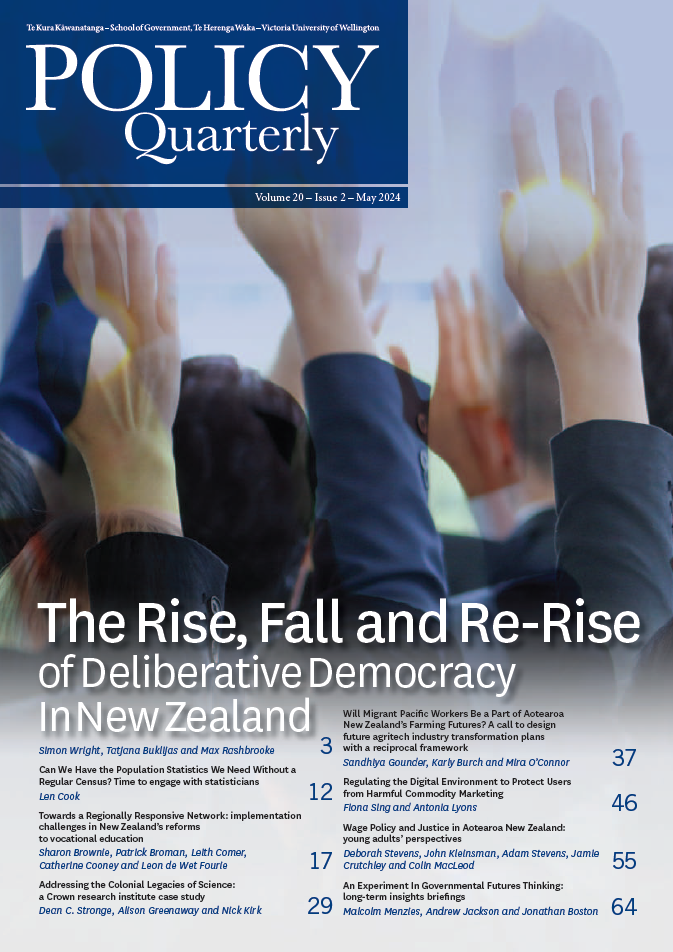Towards a Regionally Responsive Network implementation challenges in New Zealand’s reforms to vocational education
DOI:
https://doi.org/10.26686/pq.v20i2.9479Keywords:
vocational education, educational reform, centralisation, decentralisation, regional programmes, equityAbstract
New Zealand has been undertaking major reform of its vocational education sector since 2019. Changes have been extensive, including the establishment of a national delivery body (Te Pūkenga), and the formation of workforce development councils, regional skills leadership groups, centres of vocational excellence, and a coalition of expert Māori advisors (Te Taumata Aronui). While a new government is reconsidering these structures, including stating a commitment to disestablish Te Pūkenga, it is timely to explore the key policy issues facing the vocational education sector. Accordingly, this case study considers how best to balance local and national interests. We suggest changes to ensure that the sector is well structured, governed and funded, and meets the needs of the communities it serves.
Downloads
Downloads
Published
Issue
Section
License
Permission: In the interest of promoting debate and wider dissemination, the IGPS encourages use of all or part of the articles appearing in PQ, where there is no element of commercial gain. Appropriate acknowledgement of both author and source should be made in all cases. Please direct requests for permission to reprint articles from this publication to Policy-Quarterly@vuw.ac.nz.



